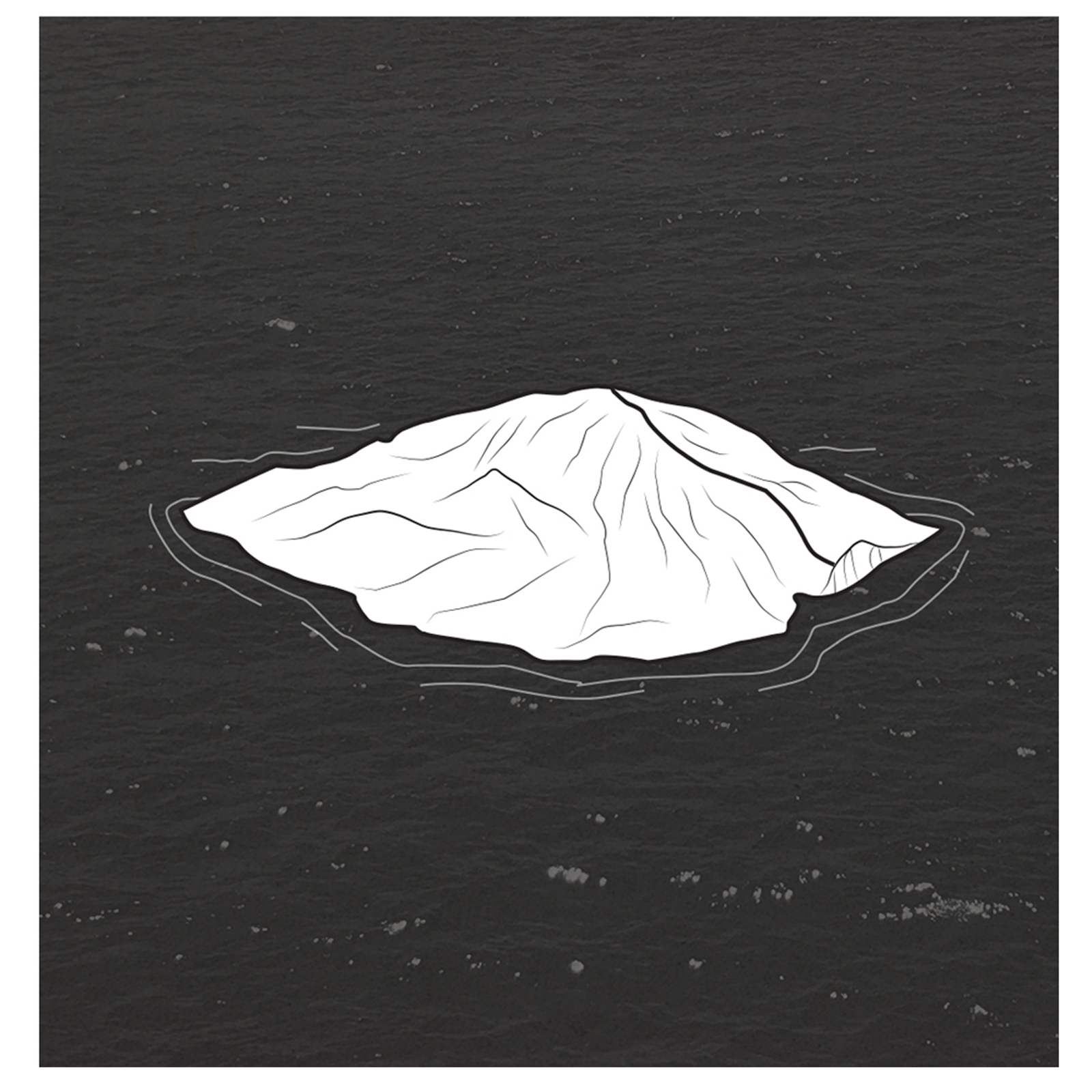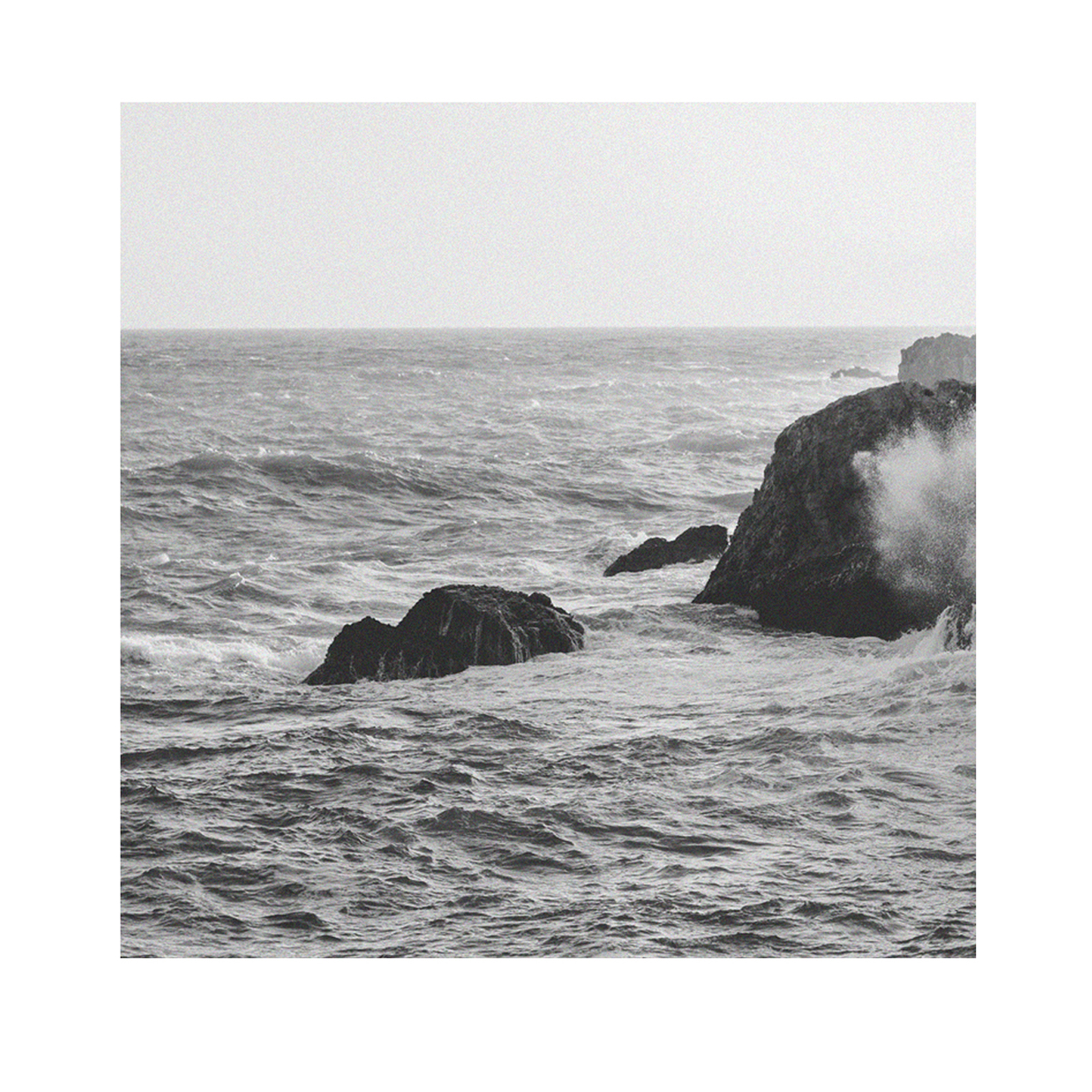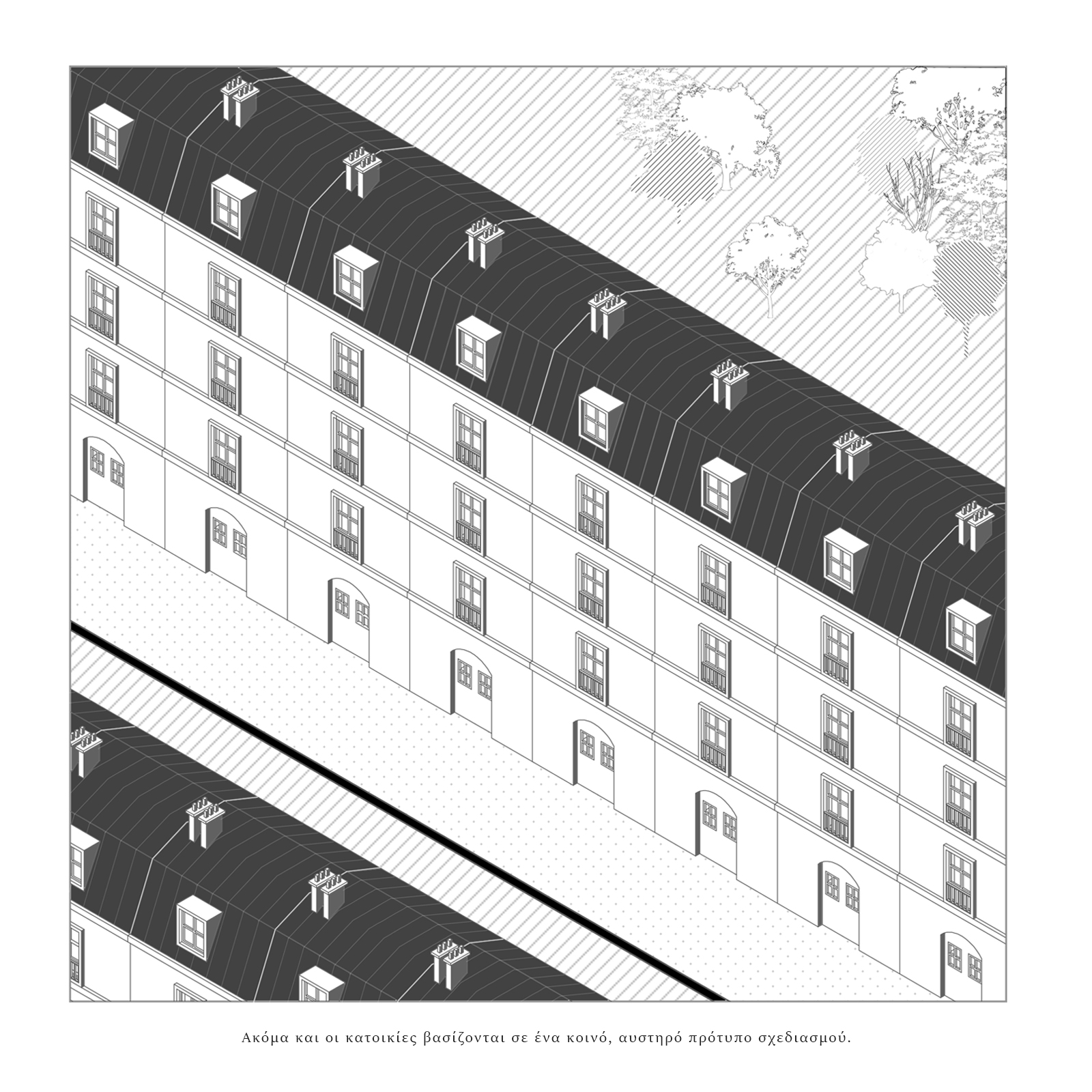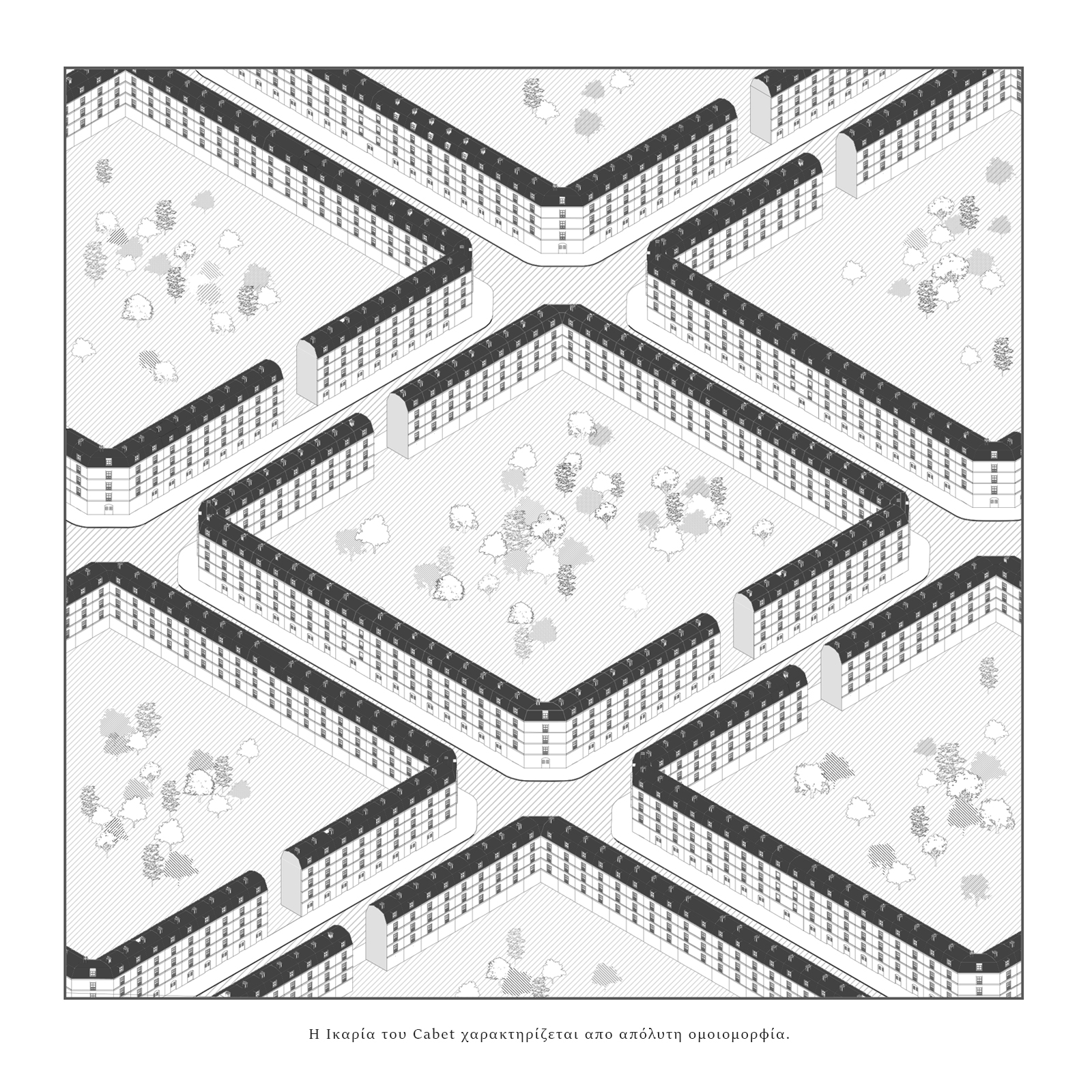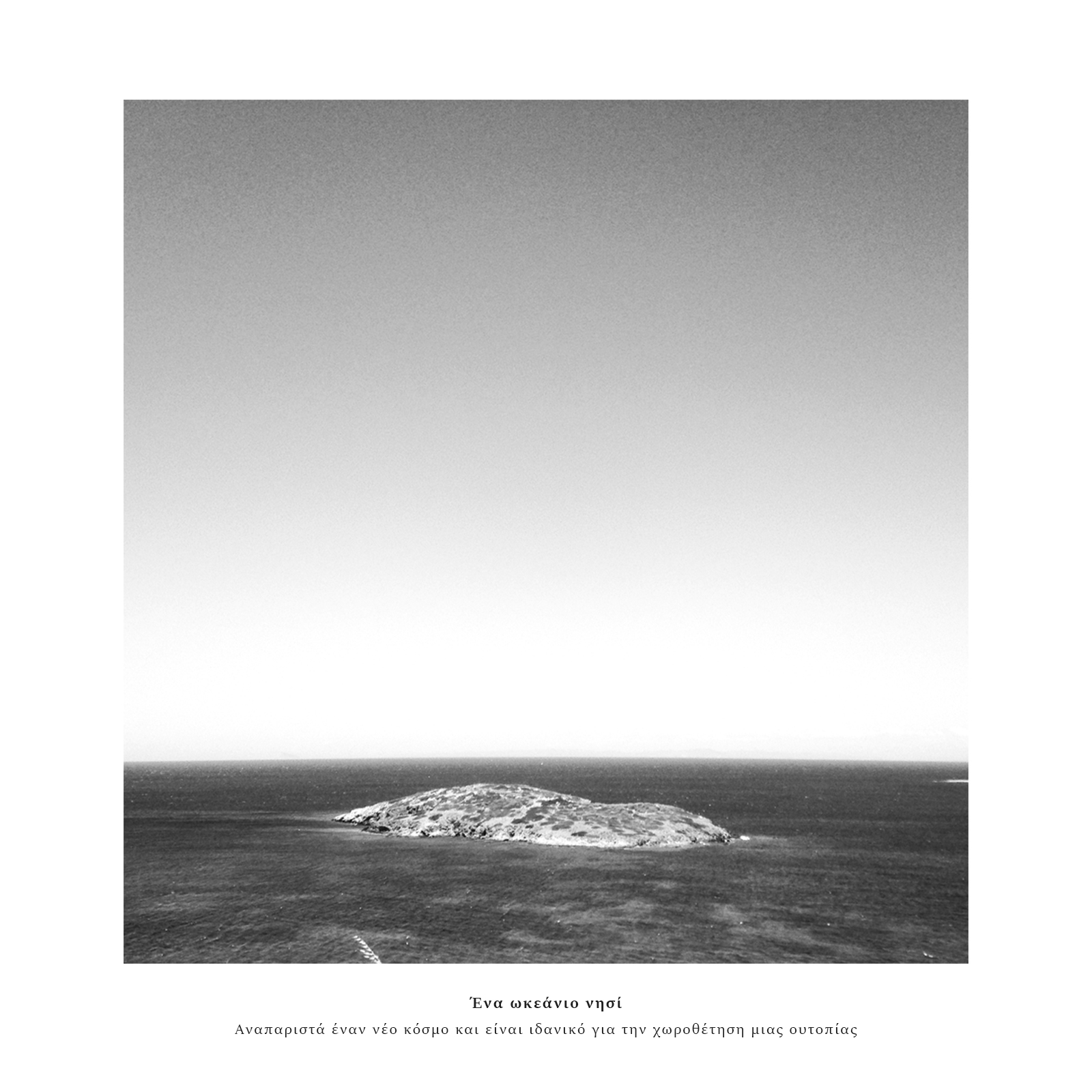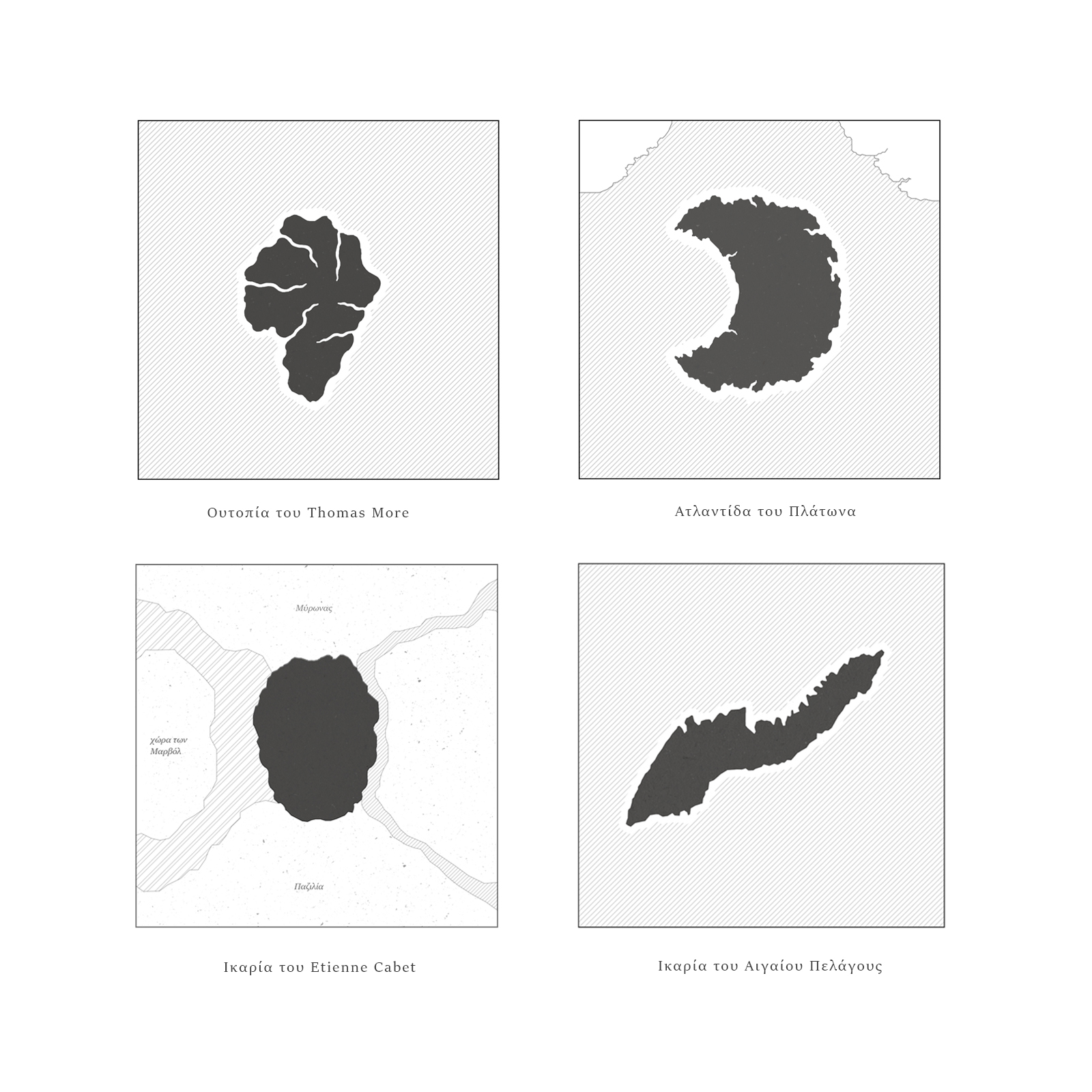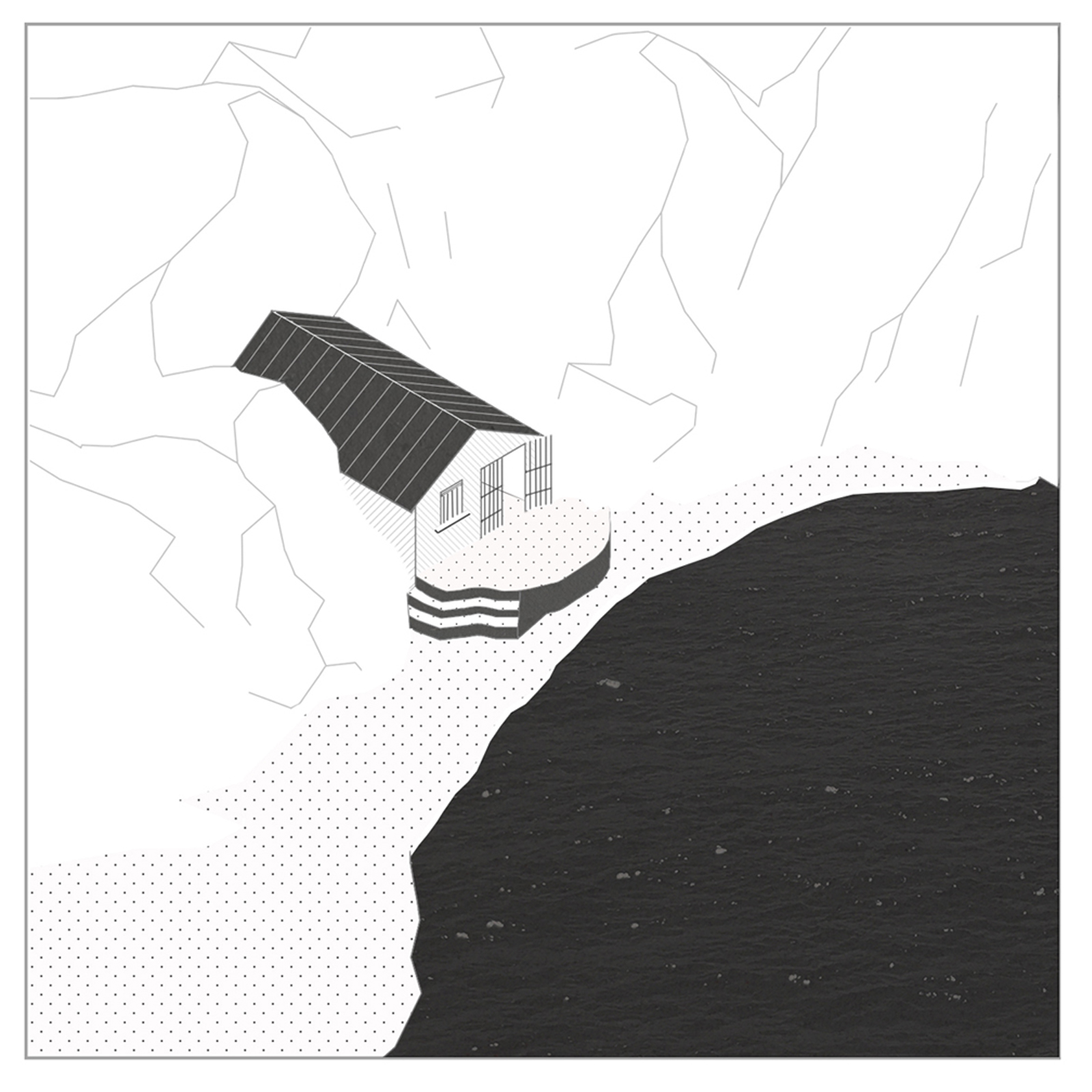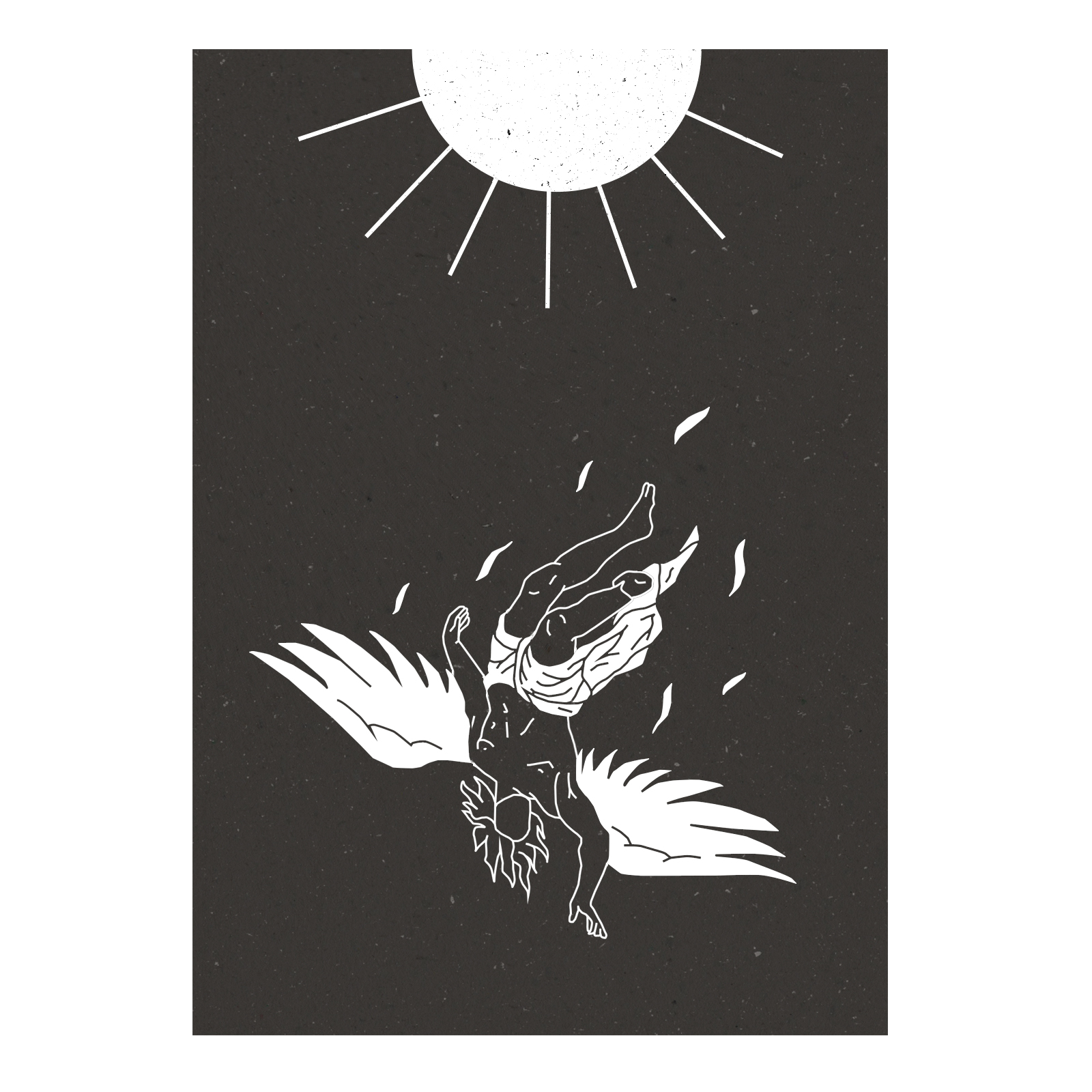The title of the research thesis is: Icaria elsewhere: The island as a place between utopia and realityand explores the odd relationship between utopia and the island of Icaria.
In difficult times, people usually tend to deny reality and create an imaginary ideal world, a reality out of space and time, far away from anything that human abilities can approach. Utopia often reflects the pursuit of this new reality. Utopia is a vision of another world, a lost continent or a remote island, a future discharged ofall the undesirable elements of the present.
Is the attempt to conquer utopia a mere fantasy? In ancient Greek mythology, the myth of Icarus is known as a warning against the disposition of a man to disregard the limits, against his disposition to exaggerate but also as the ignorance of the danger that any such pursuit involves. His death reveals the consequences of every act that seeks to erase the gap between earth and paradise, between imperfection - that characterizes the human condition - and absolute good, which does not dwell in this world, but in a divine place.
However, the boundaries between possible and impossible, between hope and utopia, are not clear. The fear of the unknown and the unpredictable, this challenge against human, often seems to be provokable. By its very nature human has a need to improve the present state: when it is not presented in actions, as in the myth of Icarus, it is conveyed through the dreams and utopian thoughts of the human about another, imaginary world. Such worlds have been expressed from time to time in various forms and ways. Among them we can often find societies that somehow remind us of Icaria.
The aim of the study is to understand the significance of utopia and the reasons why any attempt to accomplish this dream has been proved ineffective. Perhaps the goal is to identify how utopia can be a part of the real world.
The research begins with the analysis of utopia, examiningthe necessary definitions for its understanding. Also, the definition of the island, the conditions that make a piece of land enclosed by water capable of being called so and why the imaginary element is strongly associated with the island. Basic utopian theories that refer to different periods of time and have influenced most philosophersare analyzed while looking for their intersection.
The main subject of our research is the book of Etienne Cabet, Voyage enIcarie. It belongs to the utopias that have been tried in practice for many years and have failed, emphasizing the assumption that as a system with specific rules and strict principles, utopia can’t be achieved in the real world.
Icariaof Cabet, finally, is a theoretical condition - impossible to be accomplished -. The real island of Icaria on the other hand, despite its special geographical location, remains connected to the real world. With idealistic elements that are preserved over time, and amenable to influences and progresses, perhaps it is finally the place of another utopia. The hypothesis of the present study, finally, is that - in a some strange and perhaps ironic way - the real Icaria, the island of the Aegean Sea, could consist a kind of realizable utopia

